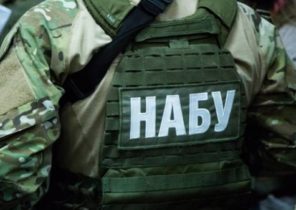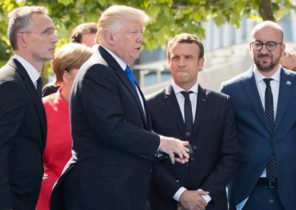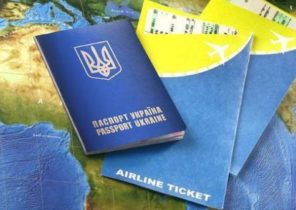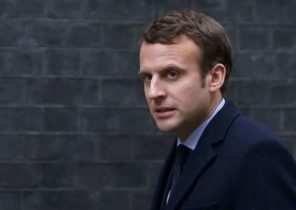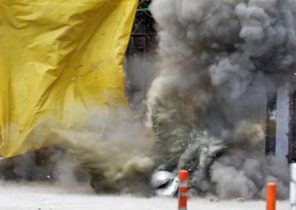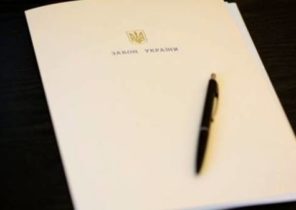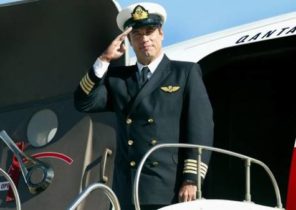
Rzeczpospolita: does the Polish Eastern policy to rely on the doctrine of Giedroyc (Jerzy Giedroyc), which is required to maintain the closest possible relations with the Eastern neighbours even at the cost of current self-interest? Isn’t it time for us to rethink our political goals and strategies?
Slawomir Dembsky (Sławomir Dębski): the Foundation of Polish foreign policy is anti-Imperial doctrine, which comes from a long tradition of understanding of the place of Poland in the world: from Mochnackiego (Maurycy Mochnacki) and Czartoryski (Adam Czartoryski), piłsudski (Józef Piłsudski), Eroshevskogo (Juliusz Mieroszewski), Dmowski (Dmowski, Roman) and Giedroyc to Lech Kaczynski (Lech Kaczyński). This doctrine says that imperialism is a threat to the world, and strategic interests of the Polish state are that all our Eastern neighbors was free, independent and independent.
— You combine Dmowski with Giedroyc and Mieroszewski?
— Among all the political writers of the XX century Roman Dmowski and yuliush Mieroszewski were the main promoters of the sober perception of the place of Poland in the world. Unfortunately, their ideas often refer to those who either never read their works, or believes that they would speak about Poland as 50 or 100 years ago, as if nothing had changed. If this were reality, they would today patrons of political stupidity, not rationality. Dmowski wanted to make Poland part of the political West. He advocated cooperation with Russia because she was an ally of France and Britain, and was introduced so the Polish theme in Western politics. Now Russia seeks to weaken the West. So today, I think, Dmowski tried to support the Ukrainian and Belarusian statehood, as these countries are our bulwark against anti-Western and neo-imperialist Russia.
— What is the meaning of the desire to maintain the closest possible relations with Ukraine?
Ukraine fell victim to Russia’s aggression, and Poland condemns the violation of international law, which prohibits wage wars of conquest, to use foreign policy power and to move the border. Our policy toward Russian aggression against Ukraine comes not from emotion, but from a desire to protect fundamental world order principles, as well as from our strategic interests, which lie in the existence of an independent and sovereign Ukrainian state. If we allow Putin with impunity to deprive Ukraine of its territory, what is to stop him before to use this tool again and attack other neighbors?
— Putin says he is again fighting against fascism, in an effort, as once the Red army to liberate Europe from the.
It’s an interesting topic. The Russian propaganda rhetoric, in my opinion, contradicts itself. Poland demands Russia to return to her cultural values, which were taken from our lands after 1945. So the Kremlin will have to decide what did the Red army liberated or robbed. One or the other. Liberators do not Rob, and certainly won’t hesitate to return the stolen wealth. As for the Nazis in Ukraine, it was, of course, an element of war propaganda, which Putin explained to Russians, why was it necessary to attack the “fraternal” Ukrainian people. He explained that the brothers have become fascists, so we need to invade their territory and take away the Crimea.
— Why Putin may need new conflicts?
— He thinks the post-Soviet space area, not international law, and where Moscow may quietly, with no one believing, to use force. Putin may want to expand this space. Therefore, the Polish strategic interest is to kill the demon of Russian imperialism. For this we need allies. Listening to the political justification of the armed attack on the Ukraine, we learned so many absurd things, for example, if the Crimea was something of a Russian Jerusalem, which Putin can expect, in principle, anything. He has enough imagination to invent new meaningless arguments in favor of conducting offensive operations. Poland is in favour of a world without wars of conquest, we should strongly speak out against turning the war into an element of foreign policy and the movement of the boundaries by means of aggression.
— Okay, but how are we to act in light of this reality, in which anyone in the world is not concerned about occupation of Crimea, and the West is beginning to think about giving up anti-Russian sanctions?
— First, in March 2014 at the UN General Assembly, the accession of Crimea to Russia recognized by only 11 States, 100 he was sentenced, and 58 abstained. So the strategy of non-recognition of Crimea as part of Russia remains the common denominator policy of most countries of the world. Therefore, the anti-Russian sanctions imposed for the annexation of the Peninsula, will remain, even if they cancelled all the rest. This situation may last decades. An important item in Polish foreign policy, advocates the idea that Russia could restore its image in the international arena, only withdrawing from Crimea and Donbas. Ukraine has the right to restore its territorial integrity and to make their own decisions about their fate.
— Should we defend the truth and fight the falsification of history in Ukraine? Or is it better not to spoil Polish-Ukrainian relations?
— President Andrzej Duda (Andrzej Duda) in an interview with Polski Przegląd Dyplomatyczny rightly said that the truth should speak in eyes, without hiding anything. But as we have already pointed out the bad, we should point out the good: both people have to find what connects us to our history, and at the same time to correct their mistakes.
— To gloss over the problems of the Volyn massacre, to do everything I could not to harm mutual relations, but not the cost?
Bad was the inconsistency and erroneous compromises, when we tried to gently tell part of the truth that the opposing side got the signal, but not offended. Such signals arrived from Poland, one after another. But in Kiev, they understood differently, as a sign that this topic is not for the poles plays a key role. At the same time said that now is not the time for condemnation of the Volyn massacre. It lasted 20 years. But then Russia attacked Ukraine and began to use dark pages in Ukrainian history to strike at the independence of this country. If the elites of our countries in time taking the time to address this problem, Russia would have lost this argument. Poland, pursuing their own interests, requires all partners to renounce force as an instrument of doing politics. We therefore condemn the Russian aggression against neighbors, and mass political killing: how and Volyn Katyn and Holodomor.
— How are our relations with Belarus? Have you changed the position of Alexander Lukashenko after Russia’s attack on Ukraine?
It was undoubtedly an important lesson for all countries that emerged after the collapse of the Soviet Union. Perhaps Lukashenko realized that integration with Russia, creating a single Union state closer to the moment when Moscow will swallow Belarus, as she swallowed the Crimea and the Donbass. Because the Russians and Belarusians — is also a “fraternal peoples”.
— So we need now to support Lukashenko?
— We should give him the opportunity to expand the field of political maneuvering. In practice, this means that it will have to come into political contact.
— That is, to negotiate with him…
— That is politics. If Lukashenka is ready to create favorable conditions for political and economic cooperation between our countries, you should think about it.
— And to close the TV channel “Belsat”, since it interferes with Lukashenko?
I don’t know all the details of this case, so can only speak about the General factors that could affect the decision-making process. First, the “Belsat” is an instrument of our policy against Belarus, so from time to time to re-evaluate its effectiveness. The international context is changing, you should think, is it time to change our tools. Secondly, I don’t know how big was the audience of the channel, but it just looked Lukashenko, who has spoken out several times on his programs. Third, in the ten years we’ve invested in the “Belsat” about 40 million euros a year we allocate for this purpose approximately four million. The range of solutions that can be taken on Belsat. EU is very broad, irreversible will only be its closure. I think if President Lukashenka wants to persuade the Polish government to reflect on the functioning of the channel, he has some ideas about some political equivalent, equivalent in its value, and it is possible to make the decision reversible. We tried to conduct in relation to Belarus are very different politics: there were sanctions and periods of thaw. After joining the EU we have spent on support of the Belarusian democracy around 140 million euros. Belarusian independence support costs, but we can think about the choice of methods.
— What political purpose is served now by the TV channel “Belsat”?
— It supports pluralism in Belarus. We applied this tool in the moment when Lukashenka turned towards authoritarianism and as we thought, strengthened the dependency of his country from Russia. Moscow does not welcome pluralism in Eastern Europe, as it seeks to establish there own monopoly. The question is whether Lukashenko is now, after the attack on Ukraine, become an obstacle to Russia’s Imperial ambitions. The same person can start to play a very different political role than before. There is nothing unusual in international politics as it happens.
— How are our relations with Lithuania? In the context of the offensive of Russian imperialism it looks to be the most reliable partner of Poland from all neighbors, although the problems in our relationship is a lot.
Are you trying to impose me a diagram Giedroyc: Ukraine, Belarus, Lithuania. Meanwhile modern Lithuania there doesn’t fit. The disastrous in foreign policy — thinking schemes, also outdated. Lithuania, like Poland, is part of the political West. We integrate it in the EU, it has become our ally in NATO, so it no longer acts as a recipient of our policy towards Eastern Europe. If someone continues to consider the Baltic States part of the region, he works for the Russian interests, because the use of archaic categories to describe contemporary phenomena creates a distorted picture, pushing the thought that the integration of these countries with the West may be temporary. No, it is irreversible.
Just after the attack on Ukraine almost no one believes that the West is ready to die for the Baltic States.
— Politics is not a matter of faith. We are interested to Lithuania, Latvia and Estonia had the same right to security and solidarity of the allies, and that every member of NATO. We do not get tired to convince our allies and we do it efficiently.
— Should we prepare for such a scenario that the Russians would invade Estonia or Latvia, and Donald trump will donate these countries for the sake of the Alliance with Putin against China?
We need to act in accordance with the practical policy of not allowing you to paralyze yourself thinking that tomorrow we will fall meteorite… Politics is the art of forming reality. Therefore, we focus on the solidarity of allies, strengthening the capacity of deterrence, investment in our own army and ability to defend its own territory. We defend our national interests in those conditions really are. The fact that Russia uses the war as an instrument of policy, threatens the whole NATO. The Alliance had to adapt to new conditions. This process served its summit in Warsaw, he is Polish European policy, the Polish policy towards the US and Eastern European States. All of this — a single array of our foreign policy.
In 2009 you said: “part of the Russian elite believes that no one will be interested in Russia if it will not create problems. To influence global policy, it needs to be in a state of conflict.” Now Russia has indeed become one of the world’s major players…
Is just an illusion. With the same success we can say that in 2004 the biggest role in the world played Afghanistan. Of course, he was the center of world attention, however, was no gambler.
— There are, however, a feeling that before 2014, and the attack on Georgia the opinion of Russia especially were not considered.
— This is not so. Even in 2009, which you remember, in Moscow’s opinion was carefully listened to and taken into account. We sought dialogue with Russia in order to be able to argue with her opinion. I will remind, Vladimir Putin after the Russian-Georgian war was invited to the Westerplatte in the 70-th anniversary of the outbreak of the Second world war. It was an opportunity to exchange opinions, and at least in official statements to indicate their attitude to the trends that have emerged in international politics.
— What is the role of such statements?
This is a very important element. They can be used to inform which questions we consider fundamental what are the basic values we base our decisions and in foreign policy. President Lech Kaczynski understood it perfectly. It is worth Recalling his speech, which he delivered on August 12 2008 at the Independence square in Tbilisi. He emphasized that the leaders of Poland, Ukraine, Lithuania, Latvia and Estonia arrived in the Georgian capital to say no to Russian imperialism and to demonstrate solidarity. He said: “We know today Georgia, tomorrow Ukraine, the day after tomorrow the Baltic States, then perhaps my country, Poland!” Kaczynski tried to persuade our allies in the EU and NATO to condemn Russian aggression. He denounced imperialism, nationalism and chauvinism. His mouth the Polish government condemned the attempt on the territorial integrity of neighboring countries, including the mistakes of history, as the seizure of Zaolzie to Poland in 1938.
The problem is that the world balance of forces at any time may lean toward Putin. Russian-American rapprochement is a danger for us: Russia will cease to be regarded as an aggressor, the sanctions will be lifted, and Poland will in no wise cast out “good company” of world politics.
In my opinion, no recurrence on restarting will not. However, we are waiting for policy transactions: we give you one, and you give us in return is another. And so until then, until there is some conflict. But let’s assume that the threat is real. Do you think that Polish foreign policy should at any cost be entirely consistent with the policy of the United States, Britain, France, Germany? Even in the case when we are sure that it is wrong? Poland is in a special situation, because we — “border castellania”, and “the Wild fields of Europe” is already on fire. Our historical experience gives us the right to understand what is peace in Europe, and what is not. If we don’t recognize the consequences of Russian aggression and the annexation of the Crimea, it would serve the cause of peace more than concessions to violence, which may become the aggressor again refer to such a policy, and then go too far and burn the whole world.
— As we reflected a sharp change of policy of the West towards Russia?
— I doubt he will change. And if so, then we’re going to differ. This has already happened. Let me remind you that in 2006 we blocked the production of a new agreement on partnership and cooperation between the EU and Russia. Then the European Commission considered the introduction of Russian embargo on Polish meat bilateral issue and in no hurry to protect our interests. The interests of different European countries sometimes differ, but this does not mean that for the sake of developing a shared position that Poland should refuse to defend their priorities. In the end, at the summit Russia — EU in Samara Angela Merkel on behalf of the European Union called Poland’s position justified, so justice was the right decision. There is a myth that anti-Imperial policy towards Russia is unprofitable. In the last 25 years Poland developed better and faster than in the previous 50, when we lived under Soviet control. The poles are better off outside of the Russian Empire, we have become more modern and wealthy. Now, the Polish economy continues to grow despite sanctions. Obstacles to trade with Russia it is almost not affected. What can Moscow offer us except that it will not create new problems? Putin again promises to return the wreckage of the crashed near Smolensk of the plane? Let the Russian market our apples?
— The theme of the debris seems to be important. There are opinions that the emphasis of the theme of the Smolensk catastrophe and the return of the wreckage serves the interests of Putin, who is able to not let us on the negotiations between Russia and the West.
— We are not interested in returning to the format of the concert of Nations, so we need to stop all the trends that go in this direction. Thinking in the categories of spheres of influence and the concert of Nations brings us back to the authoritarian ideas in international relations. If someone wants to turn the running of history, he must realize where he collapses. The attitude of Russia to Poland and other countries of our region have always shown the world what the Russian intentions in global politics. Or that the Polish government may not invoke sympathy, but to ignore his arguments impossible. The Polish opinion of Russia is always a demand.
— Why did you mention it in the context of wreckage?
President Putin is engaged in investigation of this disaster for seven years. The way he uses the theme of the wreckage shows the poles, that Moscow is waging against Warsaw unfriendly policy. The wreckage of a presidential jet belongs to Poland, it was not Russian property, and they never will be, as well as cultural values, which were taken from the country after 1945. Any Polish government would demand the return of the wreckage, it is not even in the enquiry, but the principle. It is a litmus test, showing the Russian intentions. If Russia is aggressive in Smolensk the subject, so she’s equally aggressive and in others. It is necessary to draw conclusions. Russia is pursuing a hostile policy toward the region.
— How to improve the efficiency of our foreign policy?
Once we know what our goal is, you should look for the most effective tools to achieve it. We need allies who share our assessment of the situation. So I hope that Poland will strengthen cooperation with the United States, and in Europe — with Germany, especially in the process of reforming the EU. We, unlike our ancestors got lucky: our peace and territorial integrity is threatened from only one direction. To be effective, you also need to act as a reliable partner and, therefore, vigorously defend a system that is based on international law. The Polish policy in this area should consider a broad context, not only our private interests and the common good — peace in Europe. Additionally, you should be very careful not to confuse objectives with means which serve to achieve them.
